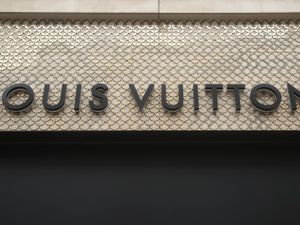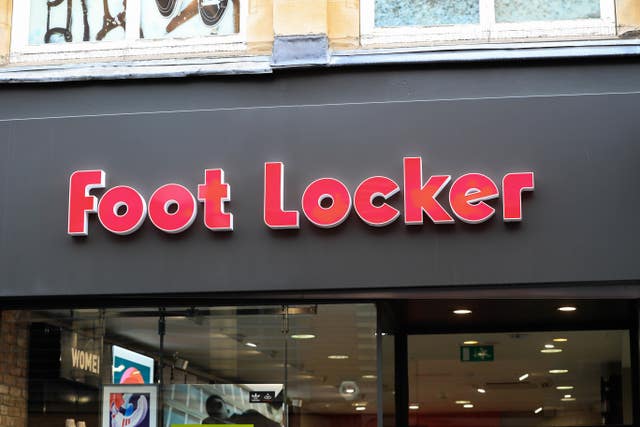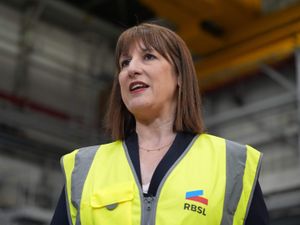Fashion firms relying on paper promises to tackle forced labour – campaigners
The Business and Human Rights Resource Centre’s annual benchmark looked at 65 companies’ efforts to protect workers in their supply chains.

Some of the world’s biggest fashion brands are relying on paper promises to eradicate forced labour, putting supply chain workers at risk, campaigners have warned.
The Business and Human Rights Resource Centre’s (BHRRC) annual benchmark, released on Thursday, looked at 65 companies’ efforts to protect workers in their supply chains from forced labour risks.
The United Nation’s International Labour Organisation defines forced labour – which can include threats of penalty, debt bondage and trafficking – as a form of modern slavery.
The BHRRC used 12 key indicators in its methodology, giving firms an overall score out of 100 based on how well they implement them, including supply chain transparency, management and accountability, responsible recruitment, supply chain risks data and remedy programmes.
While the report found that a handful of leading companies are showing progress, allegations of forced labour were identified in the supply chains of almost half the benchmarked companies.
More than one in five companies (20%) scored five out of 100 or less on their efforts to tackle the issue, and one in three companies (35%) scored less than 10 out of 100.
Some of the lowest scores in the benchmark were in the luxury sector, including Louis Vuitton-owner owner LVMH and Salvatore Ferragamo, which scored just six out of 100 and four out of 100 respectively.
Sportswear giant Footlocker also ranked towards the bottom of the benchmark with a score of two out of 100.

However, the highest scorers were three companies – Lululemon, Puma and Adidas, which scored more than 50 out of 100.
Lululemon, which ranked first, disclosed markedly stronger human rights due diligence efforts than others in the sector, the campaigners said.
Aine Clarke, head of KnowTheChain and investor strategy at BHRRC, said: “The fashion industry has long since been in the media spotlight for its endemic human rights risks and labour abuse scandals.
“Despite this, most companies are not adapting to the scale and scope of these issues across global supply chains.
“Exacerbated by multiple crises in 2023 – including climate breakdown, international conflict and post-pandemic realignment – alongside an increase in strategic litigation, legislation and associated operational, reputational and financial risks, makes this ‘business-as-usual’ approach by so many brands short-sighted and misguided.”
Ms Clarke said that the recent political deal on the EU’s Corporate Sustainability Due Diligence Directive, which aims to ensure businesses address their impact, serves as an “especially timely call to action” for companies and investors to look at business models that perpetuate abuse.
It comes as fashion brands including Barbour and PVH, which owns Calvin Klein and Tommy Hilfiger, recently said they will pay £400,000 to garment workers in Mauritius after an investigation found multiple examples of forced labour.
The report also highlighted key gaps in company practices while showcasing good practice examples and making recommendations for company action.
It found a significant gap between the efforts of the average company in the sector, scoring 21 out of 100 and the highest-scoring firm, which scored 63 out of 100.
Companies benchmarked since 2016 scored significantly better on average than those assessed for the first time this year, the report said.
Meanwhile, it showed that less than a quarter (22%) of companies disclosed engaging with local or global unions to improve freedom of association in their supply chains – a critical measure to uphold decent work and prevent labour rights abuses.
More than three quarters of benchmarked companies (77%) source from at least one country at high risk of forced labour – Argentina, Bangladesh, Brazil, China, Ethiopia, India, Malaysia, Nepal, North Korea, Thailand, Vietnam – yet only 8% of companies disclosed detail on forced labour risks identified across supply chain tiers, according to the analysis.
The Business and Human Rights Resource Centre said this suggests at best, a lack of transparency, and at worst, a failure in robust due diligence that goes beyond the first tier.
Ms Clarke added: “While the largest apparel companies have experienced staggering revenue growth and profit margins since the pandemic, those who work for them continue to face some of the most impoverished conditions.
“The largest apparel companies have experienced a combined growth of 42 billion dollars (£33 billion) since 2022, yet an estimated 71 million dollars is still owed to workers because of wage and severance theft committed during the pandemic.
“This disparity is most evident in luxury fashion, where record revenue growth and profit margins seem increasingly divorced from workers, and working conditions, in global supply chains.
“For multiple years running, luxury brands such as LVMH (6/100) and Salvatore Ferragamo (4/100) have performed among the poorest in the benchmark.”
She added that the top scorers such as Lululemon and Puma, which reported strong financial results in 2022 and 2023 “represent the practice of only a small cluster of companies, rather than the majority in the Benchmark – but they make clear prioritising worker protections is both possible and profitable”.
PA has contacted LVHM, Salvatore Ferragamo and Footlocker for comment.





